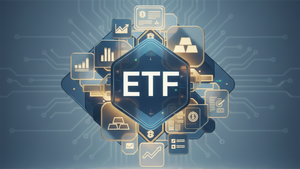Financial News
Navigating DeFi Protocols with Kinetex
DeFi, short for Decentralized Finance, has metamorphosing power over the crypto industry. It has opened up a new scope of financial opportunities for users that are more aligned with crypto’s core principles, such as decentralization and accessibility. One of its opportunities is various protocols allowing users to lend and borrow crypto assets, providing more possibilities for passive income.
As the world of DeFi progresses, various protocols emerge and decline, succeeding or failing. Let’s explore the essential factors that users should take into account while examining protocols for usability, along with the difficulties involved.
Essential Factors to Consider
Given the volatile nature of the cryptocurrency market, it might be problematic to differentiate between promising and potentially fruitless protocols. Besides, the first can morph into the second and vice versa. However, cryptocurrency owners exploring various DeFi opportunities can safeguard themselves, at least to some extent.
First of all, it is crucial to evaluate the protocol’s security, thus avoiding losses connected to the protocol’s flaws. Check if the protocol’s code has undergone an audit. Since DeFi projects operate without intermediaries and do not rely on human intervention in managing user funds, their codes must be flawless. Any vulnerabilities in the code could be exploited by hackers, resulting in significant losses. Additionally, ensure that only reputable and experienced firms conduct audits.
The security of any protocol is also connected to the teams and governing structures in charge. Some projects prefer to have teams that have an active online presence. By analyzing such teams, you can better understand their expertise and intentions. On the contrary, in some DeFi projects, the team may choose to remain anonymous to avoid shifting attention from the project to the individuals behind it. While this approach is commendable, it may raise concerns about the project’s long-term prospects.
Another factor to consider is that certain DeFi protocols possess DAOs that control them. These DAOs enable the community of their users to participate in the decision-making process, ensuring that the projects are more democratic and decentralized. Such an approach generates trust among users and increases their involvement, which is vital for long-term sustainability. However, verifying these DAOs’ integrity is necessary to ensure they are involved in the protocol’s development.
The third aspect to pay attention to is the presence of relevant and comprehensive documentation, such as whitepapers, roadmaps, FAQs, etc., readily available for all users to read. It really helps to gain insight into the project and evaluate its level of maturity and potential.
Lastly, assessing the true condition of any DeFi project requires evaluating its online communities. One can determine the community’s involvement by examining the project’s social media pages, groups, and channels. Active community engagement usually indicates a demand for the project and its products or services, which can signify that the protocol will have a chance at sustaining its popularity and growing further.
Challenges
Impermanent loss is a serious issue common among liquidity providers. When the market price of an asset changes significantly, it can lead to an imbalance in a user’s holdings and, consequently, reduced returns. This can cause a considerable revenue loss over time, sometimes offsetting the benefits of participating in the liquidity pool entirely. Therefore, managing losses and risks is crucial for users who want to optimize their liquidity provision investments.
The second critical challenge worth mentioning is interoperability struggles. Instead of being a cohesive ecosystem, the DeFi space comprises separate platforms with its own rules and protocols. This lack of unity and connectivity complicates the user experience, making it difficult for users to transfer crypto assets seamlessly between different platforms and chains. This situation is hampering the adoption and widespread use of DeFi.
Navigating the DeFi Landscape
Every user should be mindful of some negative developments in the DeFi space. One of these developments is the increasing occurrence of rug pulls and exit scams. These deceitful practices involve developers collecting funds and then deserting the project, causing investors to suffer considerable losses.
Another thing to keep an eye on is protocols with overrated tokens or unsustainable yield models. Although these projects may initially appeal to users, they may eventually lose their appeal once their defects become evident.
Moreover, it is suggested that individuals should always diversify investments, which also applies to distributing their assets across various protocols. This way, crypto owners can reduce the risk of losing everything if the protocol of their choice is attacked or compromised in another way.
Lastly, continuing to learn and keep up to date with the recent developments in the blockchain industry is essential for making more well-considered and beneficial decisions. To safely and efficiently navigate the DeFi landscape, users should stay abreast of market trends, regulatory updates, and new possible security hazards.
Conclusion
The world of DeFi is constantly changing, full of both opportunities and risks. To navigate it successfully, one must conduct thorough research, diversify investments, and keep up-to-date. As DeFi grows more mature, users and developers have a crucial role in shaping the future of the industry and ensuring that decentralized financial systems remain sustainable, decentralized, and innovative. Kinetex is at the forefront of the DeFi growth, creating cross-chain solutions that help the industry grow. For instance, Kinetex’s Flash Trade will introduce a new approach to swapping crypto between chains, enhancing the accessibility and effectiveness of crypto trading.
Kinetex Network: Website | Kinetex dApp | Blog
More News
View More




Recent Quotes
View MoreQuotes delayed at least 20 minutes.
By accessing this page, you agree to the Privacy Policy and Terms Of Service.



